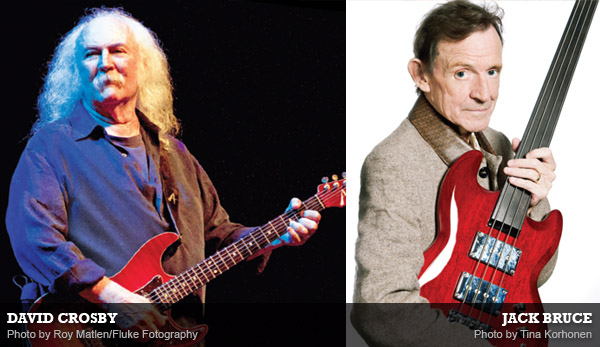
David Crosby
Singer/songwriter/activist David Crosby was born August 14, 1941 in Los Angeles. His father, Floyd, was an Academy Award-winning cinematographer, and Crosby originally wanted to be an actor. Instead, Crosby chose music and set out upon a career that brought folk rock to the mainstream and changed the face of American music.
In 1964, Crosby formed the Byrds with Roger McGuinn, Chris Hillman, Gene Clark and Michael Clarke. The band’s unique sound, melding traditional folk with modern rock, proved influential throughout the ’60s and for decades to come. Just five years after forming the group, shortly after the band’s appearance at the Monterey Pop Festival, Crosby left. He then helped jumpstart the career of Joni Mitchell, producing her 1968 debut album, before teaming up with Stephen Stills and Graham Nash to form Crosby, Stills & Nash. After a successful debut album, the addition of Neil Young rounded out the band. They soon followed with a performance at Woodstock (only their second live performance) and 1970’s acclaimed, seven-time platinum Déjà Vu.
After the release of Crosby’s first solo album (1971’s If I Could Only Remember My Name) and a short-lived Byrds reunion, Crosby, Stills, Nash & Young (CSNY) reformed in 1974. Various permutations of CSNY were sporadically active over the ensuing decade, during which Crosby’s drug abuse led to health and legal problems—he served a short prison term in 1985. Throughout the rest of the ’80s and into the ’90s, CSN intermittently toured and released albums as Crosby faced more hard times, including a motorcycle accident, the loss of his home in an earthquake and a diagnosis of hepatitis C (he received a successful liver transplant).
The 2000s saw more reunions of C & S & N & sometimes Y in various combinations and with as much success as ever. 2006’s politically-charged “Freedom of Speech” tour was documented in both a live album and film, Déjà Vu Live. Crosby has been inducted into the Rock and Roll Hall of Fame twice, for his work with the Byrds and CSN. Now at age 72, he shows no signs of slowing down: accompanied by his son James Raymond, he released Croz, his first solo album in more than 20 years, in early 2014 (see review, below).
Jack Bruce
Jack Bruce was born in Lanarkshire, Scotland on May 14, 1943, into a musical household. By the time he was teenager, he was playing both double bass and cello, and at age 17 he enrolled in the Royal Scottish Academy of Music. However, the Academy discouraged the jazz Bruce loved to play and he dropped out after three months. He soon wound up in London, just as the blues scene was exploding, and joined Alexis Korner’s Blues Incorporated. He then hopped from John Mayall’s Bluesbreakers to the Graham Bond Organisation to Manfred Mann before forming Cream with Eric Clapton and Ginger Baker in 1966. Bruce’s songwriting, vocals and bass licks bolstered Cream’s—and thus blues-rock’s—most enduring songs. After releasing several successful albums and pioneering the blues-rock genre itself, Cream broke up in November 1968.
Bruce then embarked upon a successful solo career that combined his talents in rock, blues, jazz and classical. After the release of his first solo album, 1969’s Songs for a Tailor, Bruce teamed up with guitarist John McLaughlin, organist Larry Young and drummer Tony Williams to form the jazz fusion group Lifetime. Bruce then returned to the blues with several groups, including West, Bruce & Laing and Jack Bruce & Friends.
All the while, Bruce continued to release solo albums while maintaining a career as a session musician, notably on Lou Reed’s Berlin and Frank Zappa’s Apostrophe (’) (which he co-wrote with Zappa). In 1993, Bruce was inducted into the Rock and Roll Hall of Fame with Cream, which reunited for several shows in 2005. Bruce’s latest album, Silver Rails, his first solo album in nearly a decade, was released in March.
![]()
What are you listening to right now?
David Crosby: Steely Dan—I love Steely Dan; Shawn Colvin, one of the best writers in the country or the world; and Marc Cohn, one of the two or three best writers in the world. I would cut off my arm to have written his song “Listening to Levon.”
Jack Bruce: A band called Earth—that’s my favorite band at the moment. They’re a great sort of up-and-coming young band.
What was the first record you ever bought?
DC: My parents bought the first three records that I treasured: the Weavers, Josh White and Odetta. They became mine. So I got good roots, and that’s why I became a folkie. My parents played a ton of classical music, and a lot of folk music. I must have listened to the Brandenburgs a hundred times.
JB: The first one I ever bought was the Modern Jazz Quartet, the MJQ, way back when I was in college, at about 17 or 18. But if you come from where I come from, your first record might be the first one you’ve stolen.
What was the first instrument you played?
DC: I sang in school, in the choir—almost the only thing that could keep me in school.
JB: It really would be the voice, singing. I sang for my mother, who was a pretty great folk singer. She taught me a lot of Scottish folk songs.
What brought you to the instrument you now play?
DC: My brother gave me an acoustic guitar, and I loved it right away. I had a car, so I must have been 16. I play keyboard a little to write on—there are two songs I could play on the keyboard on stage.
JB: My older brother had a piano that I started just fooling around on when I was very young, coming up with little ideas from very early on. Then I started learning cello through the school—they gave me a really nice cello, probably when I was 15, and I moved to the double bass at around the same time. I got a scholarship to study composition at the Royal Scottish Academy of Music, but I didn’t stay there very long because I was ready to go.
In the mid-’60s, after many adventures, I was playing the double bass. A Jamaican guitar player named Ernest Ranglin, who was very influential on people like Bob Marley, asked me to do a session in London and he wanted bass guitar, so I borrowed a bass guitar from a music store. I didn’t actually have any time to practice; I just went straight into the studio.
I took the technique of the double bass and applied it to the bass guitar, applying what I learned through classical and jazz—and then it sort of became blues—which is why I have this quite unusual technique. I wasn’t playing a bass guitar as a guitarist would. And then I was completely hooked. You can carry it around; it’s very light.
Who would you like to write with that you haven’t?
DC: I think Donald Fagen is a certifiable genius—I really do. But he doesn’t write with other people except for Walter Becker. My son, James, would be my first choice, but I’ll write with anybody if they bring the shit, real shit. You have to be open. So many people are so defensive about their writing because they want the publishing, and it’s about money and fame and “me.”
I love collaborating, because you spark back and forth. Communication, you know, that and the opposable thumb, that’s how we got here, being able to talk to each other.
JB: I did get to know Marvin Gaye quite well and it would have been fabulous to work with him, obviously. Pete Brown [Bruce’s frequent co-writer, from Cream hits like “White Room” up through Bruce’s current album] seems to know me better than I know myself. He comes up with the words; I have to make sure that I’m nice to him so he doesn’t have me singing bad things.
When improvising—my favorite kind of music—it’s just like conversing, talking to each other, but using notes instead of words. Recording or playing in a concert is very much a group effort, a team effort. Music is an international language. If musical conversation is what you’re going for, and if you keep your ears open and if you’re really aware of the spaces between the notes, as opposed to the notes themselves, you can’t go wrong.
Which musician influenced you most?
DC: Is it ’Trane or is it Miles? I’ll pick John Coltrane. I’m also strongly influenced by really good writers: Randy Newman, Joni Mitchell.
JB: I’ve always loved Bach, because of that classical kind of shape that he was able to apply to things and the energy and the vibrancy. I’ve always loved people who had long careers, who have managed to keep going for a long time. I was fortunate enough to see Duke Ellington quite a lot in the old days; he just went on playing and writing his whole life, developing. He never stopped moving on.
How did you realize you’d made it as a musician?
DC: I don’t have money. I’m not rich. I drive a ’54 Ford truck. But I have a pair of the best speakers that have ever been made: Manley’s.
JB: The very first really big show, at the Anaheim Convention Center—a big rock show—I went with Eric Clapton to the furthest away seat from the stage and looked down at this little stage in the distance, going, “Wow, we’ve made it.”
Who would you like in your rock ‘n’ roll heaven band?
DC: Start with Jimi, the best guitar player. Fender guitars should erect a monument to David Gilmour, he’s sooo good. So is Eric Clapton, but the funny thing about Eric is that he’s a fantastic guitar player, but he’s an even better singer, and a brilliant songwriter. He doesn’t get the credit he deserves. Or Mark Knopfler, who made the best rock ‘n’ roll single in history: “Money for Nothing.” There’s no question.
Graham Nash and Phil Everly were the best harmony singers. Graham is the best I’ve ever sung with—ever; he’s scary. Keyboards, no question: my son…but if he were away, then Donald Fagen, because he’d bring his songs, and I’d get to sing them. Bass: Kevin McCormick, who I’m playing with now, or Lee Sklar or Jaco Pastorius, if he hadn’t been stupid enough to get dead. Drummer: Stevie DiStanislao or Russell Kunkel, and if I couldn’t get him, then Jeff Porcaro. Or I could’ve just picked the Beatles. That’s a pretty good band.
JB: We can start off with Duke Ellington. Obviously you have to have a place for Jimi in there; we’ll squeeze him in. My old friend Tony Williams on drums would be nice. Larry Young on organ. Most of those people are already playing upstairs.
Tell us about your new songs.
DC: These are really intimate songs, and they have a story to tell; they’re about something. It’s not like I don’t like to rock. Every once in a while I’m possessed by a terrible urge to rock. But I do love to communicate, and I’m about the music. I want to serve the song. I want the best out of it that I can get. That’s my job. If you don’t know I can play and sing, you haven’t been paying attention—I got nothing to prove.
JB: It is very important to play the song, not just to play as many notes as you can. You do that when you’re young; you like to show off your chops. The most important thing that you’re trying to set up is the song. Just the song. Even if you’re a classical musician playing a symphony, you have to interpret that—you got to play within the framework of that.
How has your touring changed for this album?
DC: I don’t want to do the same kind of tour. I want to do little short residencies in places with only a few hundred people where I can do my best work. I don’t have to work in broad strokes, I don’t have to wave a sash around or set off pyrotechnics. I can try to tell a tale.
JB: I’m not planning on doing long tours at the moment. A couple of years ago, I played all over the world for the whole year, and to be honest, I had enough of touring by that point. So I do little things now; I play short tours or one-off concerts, really nice festivals in Italy or someplace where it’s really pleasant to be. But as far as grinding out the miles, I’ve done that already.
What’s your desert island album?
DC: Absolutely no contest: Aja [by Steely Dan]. Gaucho is a real contender, but I’ve listened to Aja a thousand times. The songs are so good. Its depth, the quality of the writing, the execution of the record, the performances, the productions, the mixing and the layering keep me coming back.
JB: Blonde On Blonde. Kind of a nice one to finish on.


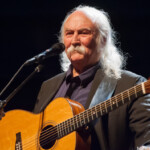
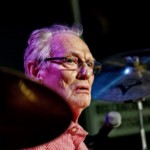
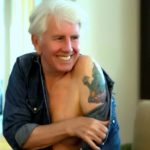
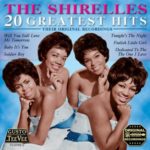

[…] Following up on the jazz and blues he’d played in the early/mid-’60s (with groups like Alexis Korner’s Blues Incorporated and John Mayall’s Bluesbreakers), Bruce embarked upon an adventurous post-Cream career that combined those genres with rock, classical and more. After the release of his first solo album, 1969’s Songs for a Tailor, Bruce teamed up with guitarist John McLaughlin, organist Larry Young and drummer Tony Williams to form the jazz fusion group Lifetime, before returning to the blues with various groups, including West, Bruce & Laing and Jack Bruce & Friends. All the while, Bruce continued to release solo albums while maintaining a career as an in-demand session musician, notably performing on Lou Reed’s Berlin and Frank Zappa’s Apostrophe (’) (which he co-wrote with Zappa). In 1993, Bruce was inducted into the Rock and Roll Hall of Fame with Cream, which reunited for several shows in 2005. Bruce’s last album, Silver Rails, his first solo album in nearly a decade, was released in March. For more on Bruce’s own thoughts on that album as well as his career and legacy as a whole, see here. […]